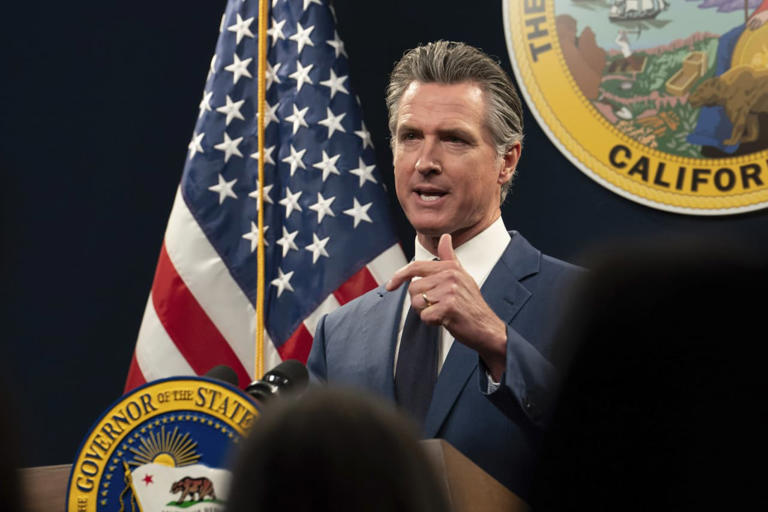Progressives in Sacramento, the capital of California, have long been associated with their penchant for implementing regulations that place burdens on businesses. However, a recent development regarding California’s new $25-an-hour minimum wage for healthcare workers has prompted them to reconsider their stance. This wage hike, scheduled to come into effect on June 1, has raised concerns about its significant budgetary costs, leading to a scramble among the Democratic Legislature to delay its implementation. This unexpected reversal of policy has put Governor Gavin Newsom in a precarious position, as he finds himself retracting support for a law he signed just last October.
The primary driver behind this reversal is the alarming state budget deficit, which has ballooned to a staggering $45 billion. Governor Newsom has projected an additional annual expenditure of $4 billion due to the new healthcare minimum wage, attributing this cost increase to higher Medicaid expenses and increased compensation for workers at state-owned facilities. Despite prior warnings from legislative analyses regarding the potential budgetary strain, Newsom proceeded with signing the law, setting the stage for a significant increase in the minimum wage for healthcare workers.
Under the new law, the minimum wage for healthcare workers is set to rise to between $18 and $23 an hour, depending on the type and size of the healthcare provider, starting this Saturday. By 2028, nearly all workers at healthcare facilities, including janitors, will be required to receive a minimum of $25 an hour. This substantial increase represents a significant shift in wage policy, especially considering that California’s current minimum wage for all workers stands at $16 an hour.
Initially dismissive of concerns raised by healthcare providers about potential cuts to patient services resulting from the wage mandate, Democrats are now grappling with the realization that higher healthcare costs could necessitate significant cuts in government spending. This newfound concern underscores the potential ripple effects of the wage mandate on the state’s broader budgetary priorities, including infrastructure projects such as the bullet train initiative.
In response to mounting pressure, Governor Newsom has proposed tying health worker minimum-wage increases to the state’s general fund revenue and exempting state facilities from the mandate. However, critics argue that this proposal still leaves private healthcare providers burdened with the costs of the wage mandate, which they are likely to pass on to patients. As such, there are calls for a complete repeal of the $25 wage minimum, emphasizing the need for a more comprehensive approach to addressing the issue.
This reconsideration of wage policy is not an isolated incident but reflects a broader trend of selective application of wage mandates by Democrats in California. Earlier, legislation was signed to exempt fast-food restaurants on government property from California’s new $20-an-hour fast-food minimum wage, highlighting the nuanced approach taken by policymakers to navigate the complex landscape of wage regulation.
California’s experience with wage minimums serves as a cautionary tale about the unintended consequences of progressive mandates. While the intention may be to improve the welfare of workers, the reality is often far more complex, with potential impacts on employment, consumer prices, and overall economic stability. As such, policymakers must carefully weigh the costs and benefits of such mandates to ensure that they do not inadvertently harm the very workers they seek to protect.
